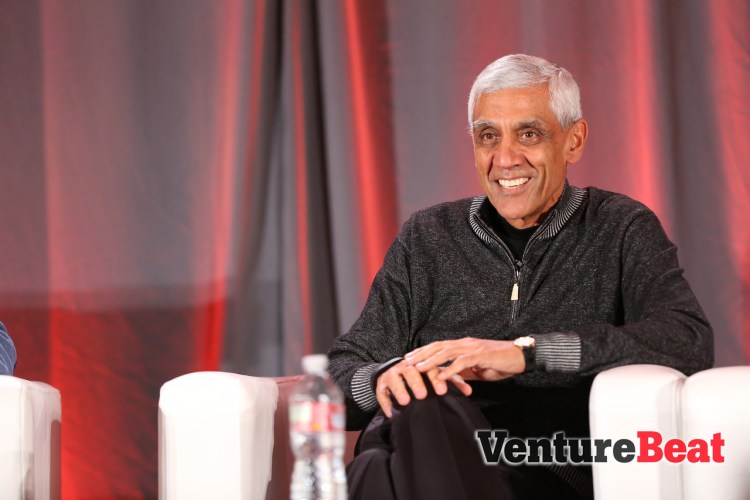SANTA CLARA, Calif. — Silicon Valley star investor Vinod Khosla is fully aware of the software-defined networking (SDN) trend. Heck, he’s invested in an SDN startup. But he sees the technology as a building block, not a world-changer.
Speaking at the Open Networking Summit here today, Khosla explained that he isn’t interested in performance improvements or cost cuts from SDN so much as he is piqued by its potential to enable rapid experimentation and constant evolution.
“Evolvability becomes much more important than optimizing for whatever your workload is today,” said Khosla, the founder of Khosla Ventures and a cofounder of Sun Microsystems.
SDN is all about stripping away the control of expensive networking hardware for data centers and sticking it on servers, where administrators can quickly manage their networks from one central place and add their own applications on top of it. And it could arguably lower operating expenses. But the ability to change networking configurations without a lot of waiting is more important, from Khosla’s perspective, because the computing world is undergoing so much change.
Wearable devices are becoming more popular. Companies are starting to collect more kinds of data. And facing those circumstances, companies that run their own data centers — or the cloud providers that run the infrastructure — need flexibility. They need to be able to adjust things on the fly, instead of taking their sweet time to get the best possible performance, Khosla argued.
And data center operators gradually ought to be able to make networks run on their own and heal themselves, he said. Removing humans from the process can prevent accidents from happening. That could come to pass, just as autopilot has become a standard in air travel.
“SDN is just a small enabler of most of these capabilities,” Khosla said.
He was weighing in as older technology vendors like Cisco, Oracle, and VMware have been making SDN acquisitions and releasing products while venture capitalists have been backing the remaining SDN startups. Some cloud providers and a few enterprises have been implementing SDN. But it’s still in its infancy.
But it might be easier to rejigger software and crush bugs to meet changing operating needs when the intelligence of networks runs in software rather than in complicated proprietary hardware.
And SDN could represent a better way to easily add or delete capacity as data needs to move across multiple sites, Khosla said.
But much of these ideals — from experimentation to evolvability — didn’t become obvious to Khosla when SDN became a hot topic three or four years ago. He talked about these principles during a presentation before an industry group on databases in 2000, he said. These are the “exact same issues that are going on in networking today,” he said.


